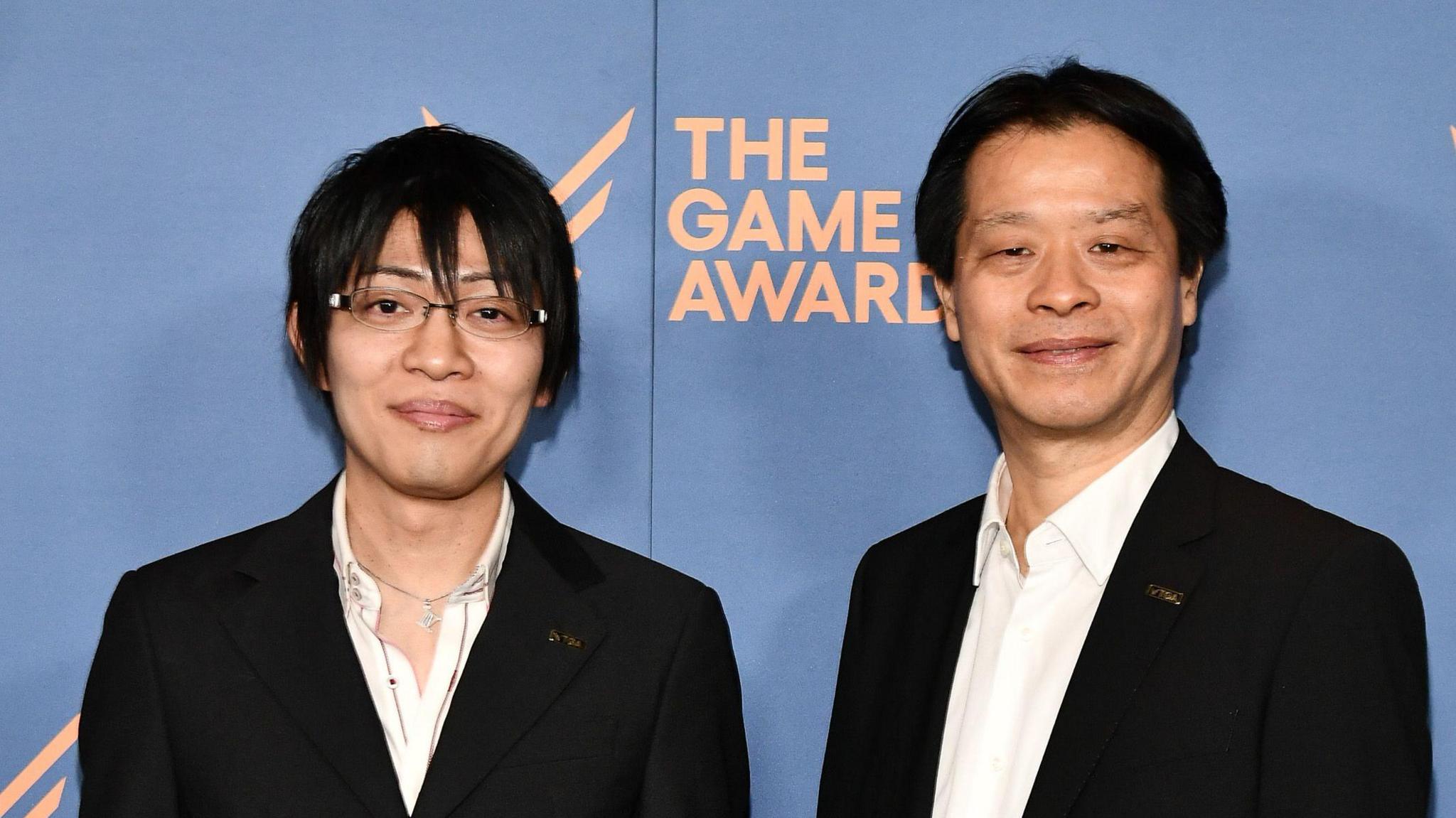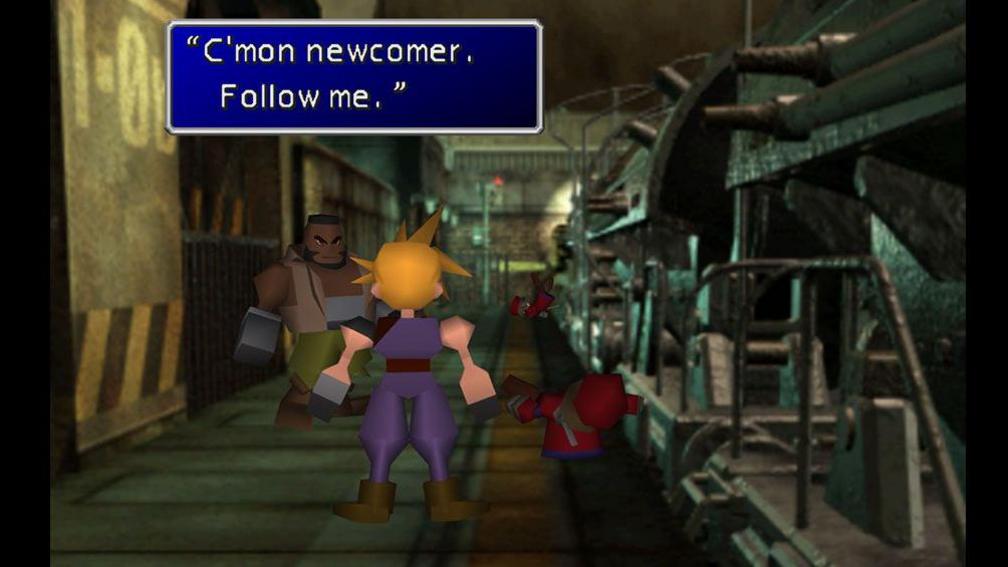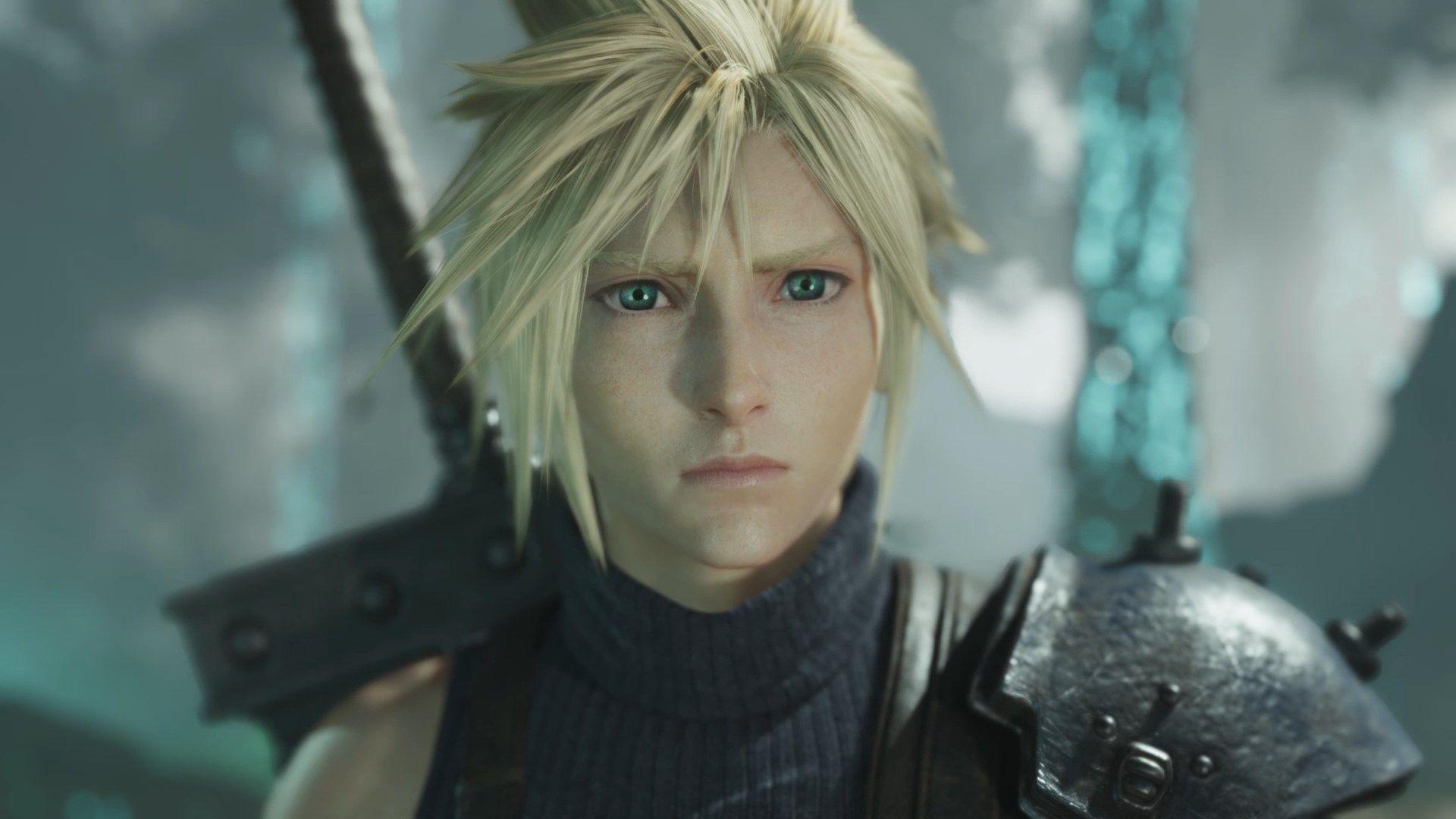Why Final Fantasy director almost rejected his dream job

Naoki Hamaguchi (left), pictured with producer Yoshinori Kitase, accepted a Game Award for best Score and Music
- Published
When Naoki Hamaguchi found out he'd landed his dream job directing remakes of his favourite game, Final Fantasy VII, he almost didn't accept.
"I realised this was going to be 10 years of my life as a games developer and I was a little torn," he tells BBC Newsbeat.
As video games have become more advanced the time - and budgets - needed to create them have grown.
For the people in charge of those projects it can mean committing a big chunk of your life, career and identity to them.
And there are few projects on the scale of the new Final Fantasy VII series.
A trilogy of games remaking the beloved 1997 classic with updated visuals, full voice-acting and a wealth of side content, it is a massive undertaking.
So far, it has gone well. The first two games, subtitled Remake and Rebirth, released to excellent reviews and both were nominated for a string of awards.
Mr Hamaguchi most recently accepted a Game Award for best score and music at the industry's biggest ceremony in Los Angeles.
Newsbeat speaks to him at the Golden Joysticks in London, where Rebirth scoops prizes for Best Soundtrack, Best Storytelling and performance.
The initial announcement of developer Square Enix's intention to split the project into three was met with some scepticism - the original game could be completed in about 40 hours.
So does Mr Hamaguchi think he's proved the doubters wrong?
"I hope we've convinced them," he says.
"With the original being so famous, so many people have their own visions of what Final Fantasy VII is. It’s very difficult to please absolutely every single fan out there."

The original Final Fantasy 7 displayed 3D characters on 2D background scenes
Despite his own concerns about the remakes taking up so much of his professional life, he says he's happy he took the plunge.
"Final Fantasy was one of the big inspirations for me to want to become a game creator in the first place," he says.
"This was my way of giving back to the series."
But he admits he's looking forward to doing something different after this trilogy of games.
"I want to move away from it and take on a completely new kind of challenge", he says.
"I've given everything I have to this."
Mr Hamaguchi says the game development climate when the first game was released means the approach to making the new games is fundamentally different.
Because it takes years to make a blockbuster game for modern machines, he says teams need to think about how the landscape will look in five to ten years' time.
For example, emerging markets such as the Middle East and South East Asia "are undergoing very rapid economic growth" and creating a new generation of gamers.
"It's really interesting to see so many young people getting into gaming in these regions," he says.

The remakes of Final Fantasy 7 bring the game up to modern graphical standards
In contrast to making a game 20 years ago, developers need to make sure cultural references work across regions where video games are more popular than they once were.
The games market is tougher, too.
Square Enix has said Rebirth - which released exclusively on PlayStation 5 - did not perform as well as it had hoped, and it recently confirmed a PC version would be coming soon.
People play on more platforms and there's evidence that many gamers are sticking with a "home game" such as Fortnite, Roblox or Call of Duty for longer periods.
Drawing them away is hard, but Mr Hamaguchi says the buzz from an awards nomination can give a game a boost.
"Previously we'd release a game on a console and it would sell very well for the first couple of weeks," he says.
An award mention can help a title stand out from the crowd and push it to the front page of online storefronts.
Game Awards 2024: Astro Bot Wins Game of the Year
- Published13 December 2024
FF7 actress's nervous wait for fan reactions
- Published9 March 2024
Final Fantasy VII's history stretches back more than 20 years, but does Mr Hamaguchi have any thoughts on where gaming might be in the same amount of time in the future?
"Something along the lines of virtual reality, or perhaps more like augmented reality, where you can create a digital environment which merges with the real world and people can interact with things in that world," he says.
"I think that’s a very different feeling to what we have when we play games with a standard controller today".
He also predicts headsets could become cheap and lightweight enough so we can enter and interact with games in much more immersive ways.
For now, though, he'll be focusing on the final part of the new trilogy, hoping to be up on the awards stage again.
